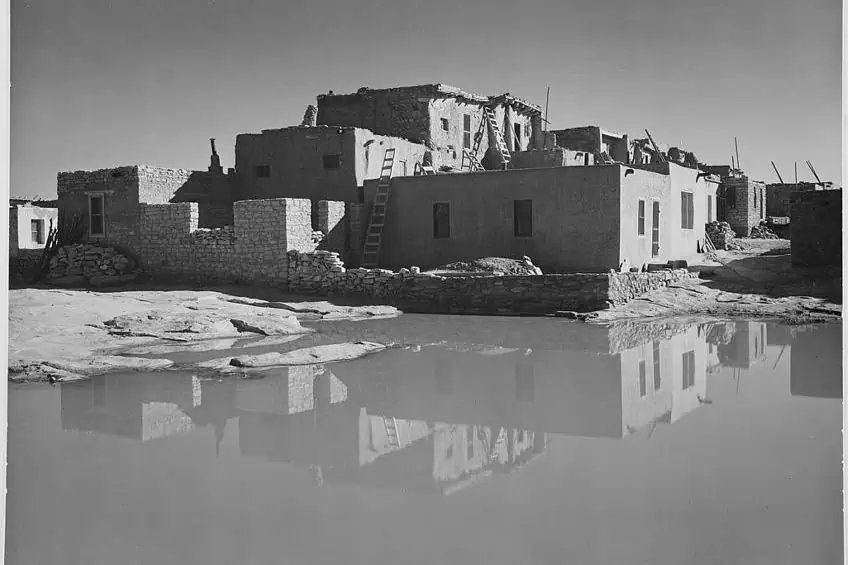Famous Landscape Photographers – A List of the Top 10 Artists
Discover some of the world’s most immersive and majestic landscapes through the eyes of some of the greatest visionaries and landscape photographers of all time. By studying the artistry and passion of iconic photographers, you can be sure to uncover the skills and secrets behind what it takes to create masterful landscape compositions that leave a lasting impression on viewers. Below, we will delve into the top 10 most iconic personalities of landscape photography, whose awe-inspiring works capture the soul of the Earth’s terrain. Keep reading for more about these incredible photographers!
Unveiling the Wonders of Landscape Photography
The art of landscape photography is one of the most impactful and relatable genres in photography that not only immortalizes the essence of our planet, but also gives one a glimpse into the unseen and uncharted territories of the world that inspire, provoke, and preserve. The art of capturing the natural landscape, or man-made, focuses primarily on the grandiosity of the natural environment and is often presented in landscape photography as scenes of majestic mountains, picturesque countrysides, serene seascapes, and other intricacies of the land that go unnoticed.
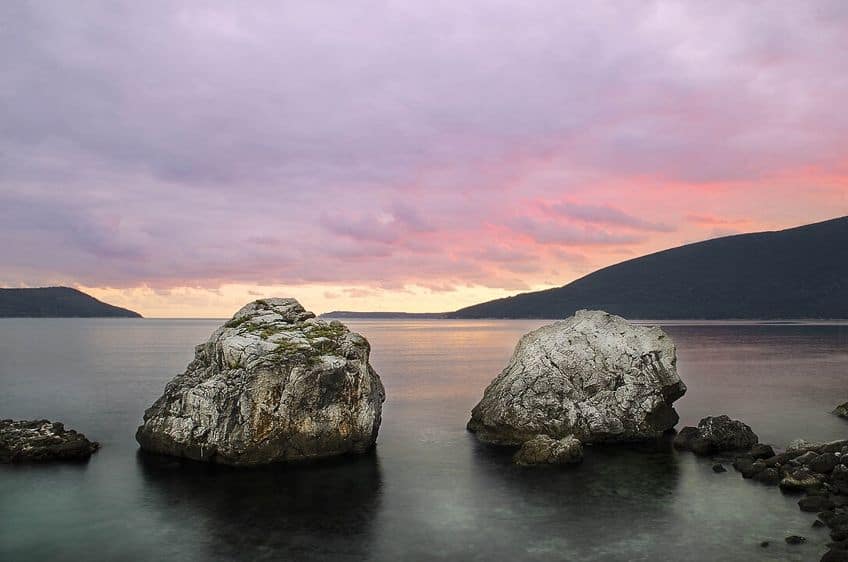
The aim of landscape photography is traced back to the admiration and study of the natural landscape. Landscape photographers employ different techniques and careful consideration for timing, lighting, composition, and location to create landscape images that evoke emotions ranging from admiration, vastness, peace, danger, harshness, and inspiring perspectives that can make one wonder how the photographer even captured the image.
In the fine arts, landscape photography enables artists to express unique perspectives of the world and can be combined with creative photography and editing to highlight landscapes in a unique and meaningful way. Through the elements of texture, light, and color provided by the natural environment, photographers already have a rich canvas ready to create and curate emotionally impactful images. Aside from the aesthetics of landscape photography, the art practice also provides one with a connection to the natural world that can be used to craft compelling narratives and advocate for the conservation of the environment.
The lens of the photographer is therefore incredibly important in exposing the world to the wonders of remote locations, diverse ecosystems, and scientific understanding of the fragility and resilience of the environment.
The Top 10 Trailblazers of Landscape Photography
Landscape photography is a potent art practice that has the power to sway our view about the environment and its needs. The beauty of landscape images is also addictive in that they serve as a means of escapism while inspiring viewers by enabling them to experience stunning visuals from the comfort of their own environment. Below, you will find the top 10 most famous landscape photographers of all time whose works will be sure to entice you!
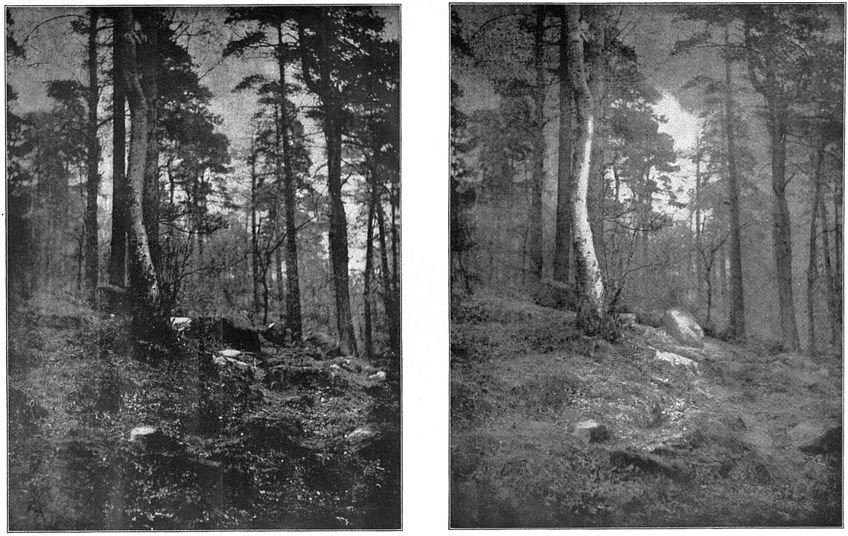
Ansel Adams (1902 – 1984)
| Name | Ansel Easton Adams |
| Date of Birth | 20 February 1902 |
| Date of Death | 22 April 1984 |
| Nationality | American |
| Associated Movements, Themes, and Styles | Landscape photography, Modern art, environmental conservation, and Contemporary art |
| Medium | Photography |
| Famous Artworks |
|
Ansel Adams was perhaps one of the most famous landscape photographers of all time who was widely recognized as one of the most influential environmental conservationist photographers of all time. Adams had a profound impact on the genre of landscape photography, which was made evident in his unique portfolio showcasing the wonders of the natural world, most famously at Yosemite National Park and of the American West.
Adams’ approach to landscape photography was praised for his masterful balance of light and shadow and his display of skillful compositions that made his landscapes stand out as majestic and powerful icons of the American wilderness.
Adams’ best landscape photographs include his black and white images, including Moonrise, Hernandez, New Mexico (1941), and The Tetons and the Snake River (1942), the latter of which captures the magnificent peaks of the Teton Range in Wyoming against the rays of the gentle sunrise. Adams’ exceptional talent inspired many to appreciate and protect the beauty of the natural landscape since the artist was also known for his dedication to environmental conservation. He believed that photography was a vital tool in advocating the preservation of the environment and so he approached his work with the utmost sense of meticulosity. Adams is also credited with inventing the Zone system, which involved the careful control of exposure and development to achieve a wider tonal variation in monochrome images.
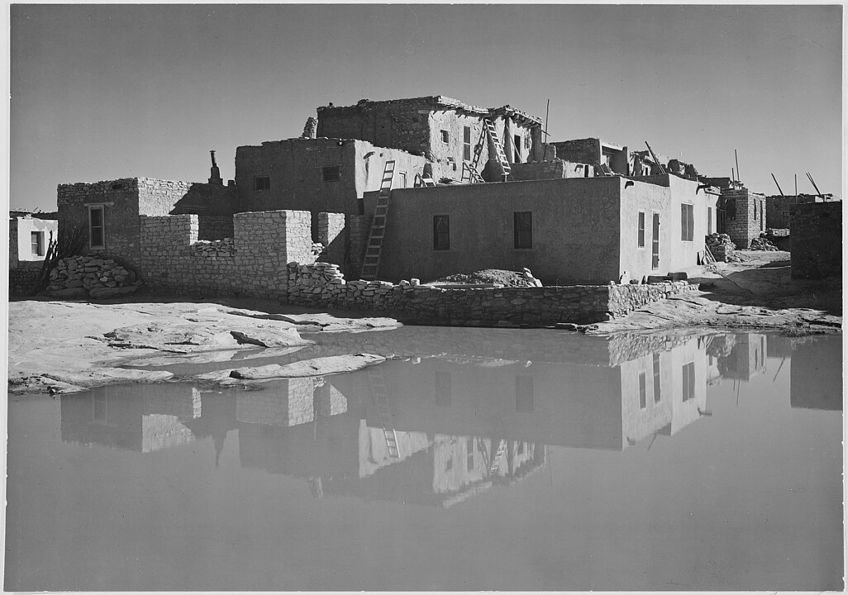
Brett Weston (1911 – 1993)
| Name | Theodore Brett Weston |
| Date of Birth | 16 December 1911 |
| Date of Death | 22 January 1993 |
| Nationality | American |
| Associated Movements, Themes, and Styles | Mexican landscapes, Mexican culture, nature photography, and landscape photography |
| Medium | Photography |
| Famous Artworks |
|
Brett Weston may ring a bell for photography fanatics, especially if you are familiar with the famed Edward Weston, whose son, Brett, seemed to take over the talented photographers division. Brett Weston developed his unique style when he was just 13 years old and had his early professional career as a studio assistant in Mexico alongside his father as well as legends such as Frida Kahlo and José Clemente Orozco.
His first exhibition was held at Film und Foto in 1929 and was a seminal Avant-Garde show that was held between a critical point in time, amidst the two World Wars.
Through his skillful eye for pure form and framing to create Modernist styled compositions, Weston established a name for himself with many of his best landscape photographs displaying a duality in visual aesthetics, such that one is forced to contemplate the finer and abstract details of the natural world found in deserts, trees, and water bodies. Some of Weston’s most famous landscape photographs include works such as Untitled (Tree Bark Abstraction) (1970) and Dune, White Sands (1975).
William Garnett (1916 – 2006)
| Name | William A. Garnett |
| Date of Birth | 27 December 1916 |
| Date of Death | 26 August 2006 |
| Nationality | American |
| Associated Movements, Themes, and Styles | Aerial photography, landscape photography, Modern art, and Contemporary art |
| Medium | Photography |
| Famous Artworks |
|
William Garnett stands as one of the most important landscape photographers of all time whose creative and God-like aerial landscape images offer breathtaking sights of the natural world that one cannot replicate. Garnett served as a United States Army Signal Corps photographer throughout World War II, which gave him some of the best views during such tumultuous times.
His experience during the war inspired him to learn how to fly a plane so that he could capture the amazing patterns of the natural landscape below him.
Before he joined the war, he had already honed his skills in design at the Art Center College of Design in California and later spent around 10,000 hours in the air photographing unique sights of the American terrain while piloting a plane. He concluded that all he required were two 35mm film cameras, both of which he used color and black and white film to capture the many stunning aerial images.
Franco Fontana (1933 – Present)
| Name | Franco Fontana |
| Date of Birth | 9 December 1933 |
| Date of Death | Present |
| Nationality | Italian |
| Associated Movements, Themes, and Styles | Abstract landscapes, Contemporary art, and landscape photography |
| Medium | Photography |
| Famous Artworks |
|
You have certainly not come across a landscape photographer like Franco Fontana. Fontana has shot some of the most unique urban and natural landscape photographs from the 1970s and early 2000s that you will ever see. Fontana is one of the most famous landscape photographers whose abstract color landscapes showcase his eye for color, space, and composition while providing unique views of the urban landscape that are familiar yet surreal in presenting the errors of man-made environments in contrast to the beauty of color that the natural land offers us.
Fontana’s subjects of urban spaces as well as natural spaces also highlight the ways that we mimic nature through color and shape and highlight the intricacies of the influence of the natural world on humans’ occupation of space.
Among Fontana’s most famous landscape photographs include Puglia (1978) and Seascape, Adriatico (1990), which use space and variation in color hue to draw attention to the horizon and a sense of balance achieved in nature. Fontana works primarily with a 35mm lens, which helps him capture the abstract simplicities of nature and the complexity of its apparent Surrealism in contrast to the urban landscape.

Dorothy Kerper Monnelly (1937 – Present)
| Name | Dorothy Kerper Monnelly |
| Date of Birth | 1937 |
| Date of Death | Present |
| Nationality | American |
| Associated Movements, Themes, and Styles | Landscape photography, fine art photography, environmental conservation, and Contemporary art |
| Medium | Photography |
| Famous Artworks |
|
Dorothy Kerper Monnelly is among the most important landscape photographers of all time and is best known for her seminal photo essay on the landscapes of the Massachusetts Great Marsh. Monelly is highly respected across the fine art photography and environmental conservation communities who praise her large-format black and white documentative style of photography that highlights the delicate beauty of the Marsh landscape.
Her more artistic and poetic photo essays can be seen in works such as For My Daughters (2012), which offers a maternal and personal visual dialogue between the land, her daughters, and her agency as a mother and photographer.
Monelly’s works are a prime example of Contemporary modes of storytelling in landscape photography that are leveraged to unpack the complex intricacies of the relationships between our environment and those around us, as well as how this shapes our occupation of space. Monelly’s work was so highly praised that she had been nicknamed the “Ansel Adams of the Wetlands”, with great respect and admiration for her ability to connect with the landscape in ways others might never realize.
Takeshi Mizukoshi (1938 – Present)
| Name | Takeshi Mizukoshi |
| Date of Birth | 1 May 1938 |
| Date of Death | Present |
| Nationality | Japanese |
| Associated Movements, Themes, and Styles | Landscape photography, Contemporary art, and nature photography |
| Medium | Photography |
| Famous Artworks |
|
Born in 1938, Takeshi Mizukoshi became one of the most well-known Japanese nature photographers of the 20th and 21st centuries who was inspired by the 1950s Abstract Expressionist movement. Mizukoshi developed a passion for both painting and photography, which was further motivated by prevailing themes of the time including concepts of the sublime and spirituality in art.
Before his early art career, Mizukoshi was enrolled at the Tokyo University of Agriculture’s faculty of forestry, from which he dropped out and began working as a naturalist.
Later, he moved on to natural landscape photography and became a mountain photographer after studying under renowned insect researcher and landscape photographer Yukio Tabuchi. Mizukoshi’s mountain photography images showcase the breathtaking grandeur of majestic mountain peaks while demonstrating the artist’s eye for composition and his personal appreciation for the relationship between light and shadow. Mizukoshi’s landscapes transport viewers to experience the serenity of mountain landscapes and evoke a sense of awe and reverence for the harsher and unforgiving terrains of nature.
Sebastião Salgado (1944 – Present)
| Name | Sebastião Ribeiro Salgado |
| Date of Birth | 8 February 1944 |
| Date of Death | Present |
| Nationality | Brazilian |
| Associated Movements, Themes, and Styles | Landscape photography, photojournalism, wildlife, and Contemporary art |
| Medium | Photography |
| Famous Artworks |
|
Sebastião Salgado is one of the most highly regarded landscape photographers of the 21st century whose contributions to landscape photography have not only recorded the splendor of Earth but also highlighted the urgent need for its preservation. Salgado leverages the timeless nature of black-and-white landscape photography to generate a deeper respect for the fragility of the environment while drawing attention to the human condition through documentary photography.
Among Salgado’s best landscape photographs include dramatic cloud formations, rugged mountainous landscapes, and the untamed wilderness, which he highlights profoundly to convey the connections that we must maintain with the environment for the sake of humanity.
Salgado’s background was initially rooted in economics, however, his passion for landscape photography led him to join an esteemed international photography group called Magnum in the 1980s, where he honed his skills and developed his artistic vision. Some of Salgado’s most famous landscape photographs include the Antarctic Peninsula (2005) and the Brooks Range, Alaska (2009), both of which are exceptional examples of pristine and untouched landscapes. Salgado has also remained a UNICEF Goodwill Ambassador for over two decades.
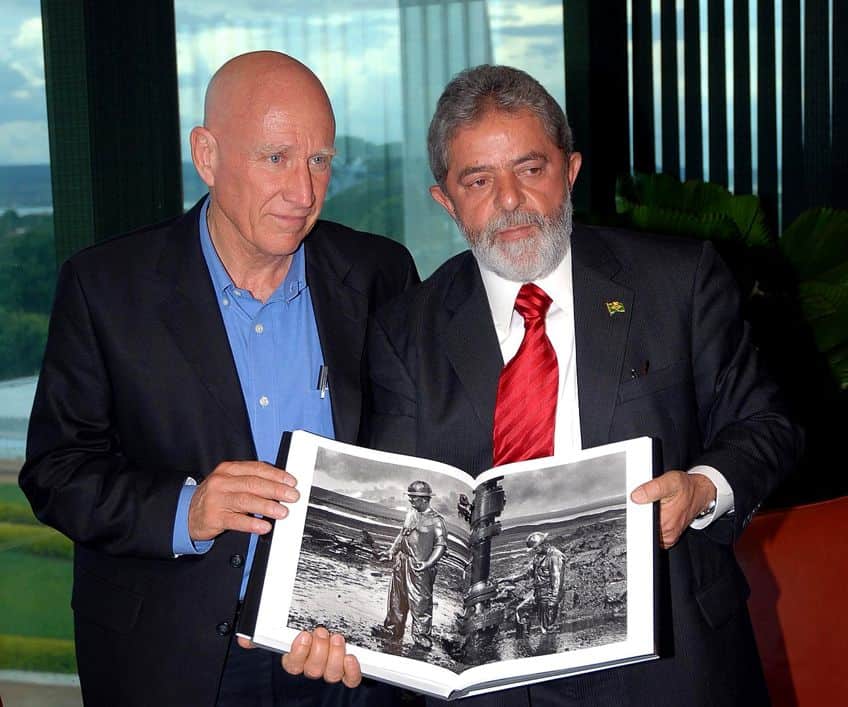
Michael Kenna (1953 – Present)
| Name | Michael Kenna |
| Date of Birth | 20 November 1953 |
| Date of Death | Present |
| Nationality | English |
| Associated Movements, Themes, and Styles | Black and white photography, landscape photography, long-exposure photography, and Contemporary art |
| Medium | Photography |
| Famous Artworks |
|
Michael Kenna is one of the world’s best Contemporary landscape photographers of the present century whose introspective black-and-white landscape images highlight the monumental and vast nature of open landscapes amidst man-made structures. Kenna is regarded as a prolific figure in landscape photography and is best known for his minimalist approach characterized by his long-exposure images that beautifully capture the simplicity and mood of an environment.
Among his most powerful works are his monochrome images from his travels in Myanmar, which offer viewers spiritual insight into the landscapes we occupy.
Through the minimalistic approach, Kenna also conveys a sense of deep tranquility and meditation by meticulously crafting poetic compositions that invite viewers to introspect on the beauty of the tonal variation he provides while admiring the ephemeral structures that occupy foreign landscapes. Kenna also states that he prefers to apply the element of suggestion instead of direct description, which he also compares to haiku poetry, which catalyzes one’s mind.
Carr Clifton (1957 – Present)
| Name | Carr Clifton |
| Date of Birth | 17 April 1957 |
| Date of Death | Present |
| Nationality | American |
| Associated Movements, Themes, and Styles | Landscape photography, wilderness photography, nature photography, Contemporary art, and endangered environments |
| Medium | Photography |
| Famous Artworks |
|
Carr Clifton is an award-winning global landscape photographer whose works are celebrated for their unique insights into the untouchable and often endangered corners of the Earth. Clifton boasts more than three decades of experience in landscape photography, which reflects strongly in his portfolio and his ability to achieve a sense of solitude, contemplation, and spectacular wonder in his open landscape images.
Clifton’s works have been exhibited at many prestigious institutions, including the San Diego Museum of Natural History, the Roger Tory Peterson Institute, The Nikon House, and the California Academy of Science.
As a highly influential and well-respected photographer, Clifton is also driven by the appeal of vast wilderness locations, which he states is where he can capture and create his best work. Having commenced his freelance career with a 4×5 view camera and film, his travels had since helped evolve his artistic vision, enabling him to capture scenes from many marvelous sites, including the Queen Charlotte Islands and the rivers of Patagonia.
Nadav Kander (1961 – Present)
| Name | Nadav Kander |
| Date of Birth | December 1961 |
| Date of Death | Present |
| Nationality | Israeli-British |
| Associated Movements, Themes, and Styles | Landscape photography, portrait photography, and Contemporary art |
| Medium | Photography |
| Famous Artworks |
|
International Photographer of the Year winner at the 7th Annual Lucie Awards, Nadav Kander, is one of the best landscape photographers of all time, whose name is synonymous with Barack Obama’s 2009 portrait. Nadav Kander is a globally renowned Israeli landscape photographer who has not only published significantly as the first photographer to feature numerous images in one issue of The New York Times Magazine but has also become a leading figure in the Photo Reportage movement.
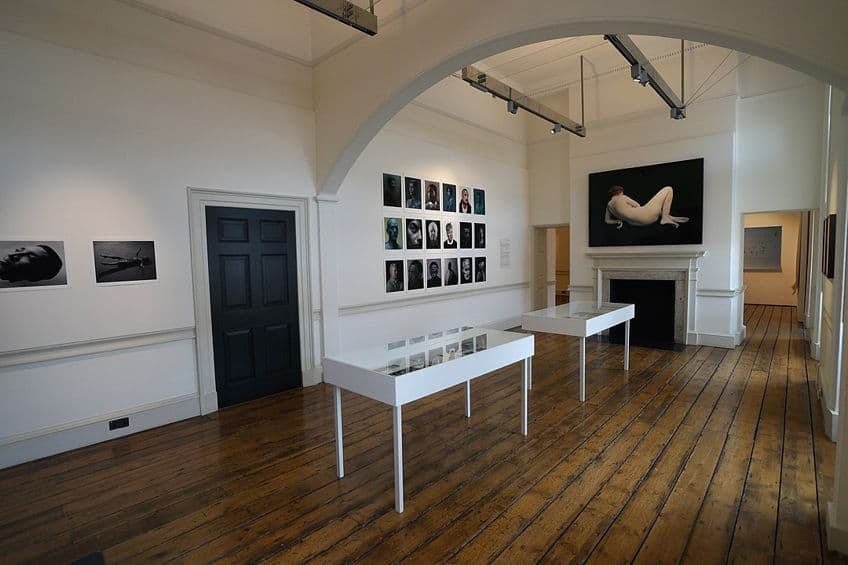
Kander has collaborated with many art institutions, including the National Portrait Gallery and the Victoria and Albert Museum while bagging the Prix Pictet Earth award in 2009. Kander’s approach to landscape photography is characterized by a focus on a landscape’s atmospheric qualities, which Kander leverages his eye for soft lighting, subtle colors, and evocative compositions to create captivating images that evoke a sense of peace. Kander’s landscapes also highlight the complex relationships between humanity and the land through poetic and contemplative perspectives.
These incredible landscape photographers show us the power of photography and the way that artists can work with nature to advocate for important environmental concerns. Appreciating the environment for both its magnificent beauty and harsher qualities is crucial to developing stronger bonds with the planet and securing a future that the next generation can continue to preserve and enjoy.
Frequently Asked Questions
What Is Landscape Photography?
The practice of capturing images of natural scenery is referred to as landscape photography and encompasses landscapes that include natural elements such as mountains, bodies of water, and forests. Landscape photography aims to highlight the beauty and serenity of a natural landscape while using photographic techniques to highlight the interplay of light, color, and texture.
Who Was the Best Landscape Photographer?
Ansel Adams was considered to be the best landscape photographer of the 20th century, whose advocacy for environmental conservation and breathtaking shots of Yosemite National Park inspired many to pursue natural landscape photography.
What Is the Importance of Landscape Photography?
The significance of landscape photography is tied to our drive to foster a connection with the natural world while aiming for environmental consciousness, such that we can preserve natural wonders through admiration and appreciation. Landscape photography can also be used in visual storytelling to raise awareness about environmental issues and convey messages about the diversity and fragility of landscapes. As such, landscape photography enables the preservation of moments in time, which will benefit future generations in the visual study of natural wonders that may disappear with time.
Jordan Anthony is a Cape Town-based film photographer, curator, and arts writer. She holds a Bachelor of Art in Fine Arts from the University of the Witwatersrand, Johannesburg, where she explored themes like healing, identity, dreams, and intuitive creation in her Contemporary art practice. Jordan has collaborated with various local art institutions, including the KZNSA Gallery in Durban, the Turbine Art Fair, and the Wits Art Museum. Her photography focuses on abstract color manipulations, portraiture, candid shots, and urban landscapes. She’s intrigued by philosophy, memory, and esotericism, drawing inspiration from Surrealism, Fluxus, and ancient civilizations, as well as childhood influences and found objects. Jordan is working for artfilemagazine since 2022 and writes blog posts about art history and photography.
Learn more about Jordan Anthony and about us.
Cite this Article
Jordan, Anthony, “Famous Landscape Photographers – A List of the Top 10 Artists.” artfilemagazine – Your Online Art Source. November 14, 2023. URL: https://artfilemagazine.com/famous-landscape-photographers/
Anthony, J. (2023, 14 November). Famous Landscape Photographers – A List of the Top 10 Artists. artfilemagazine – Your Online Art Source. https://artfilemagazine.com/famous-landscape-photographers/
Anthony, Jordan. “Famous Landscape Photographers – A List of the Top 10 Artists.” artfilemagazine – Your Online Art Source, November 14, 2023. https://artfilemagazine.com/famous-landscape-photographers/.


